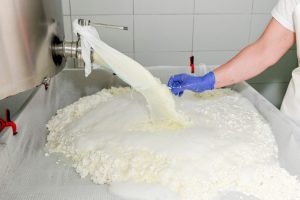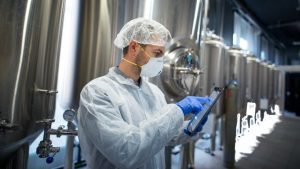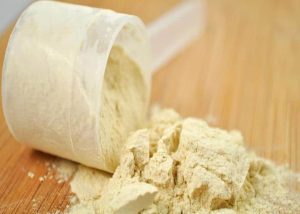
This week we read in eDairyNews about the not-so-distant possibility of cow’s milk production without cows, with the intervention of precision fermentation. In general, we get annoyed when we call milk everything that does not come from the breast of a cow, those vegetable concoctions that claim dairy properties they do not have and that are advertised as environmentally friendly, as if a cow were not; and free of animal abuse, assuming a suffering in the process that we will not tire of showing and demonstrating that it is not so.
But the fact is that whole milk powder can be perfectly copied by means of precision fermentation.
If we are talking about milk that is destined to become a powdered ingredient for the manufacture of other products, could we be open to this possibility? If we take into account that the precious milk to be produced waited for the birth of a calf, which was cared for and fed for more than two years until it could get pregnant and give birth to be milked, giving us a product whose 87% of its volume is water that is removed in the process, leaving only 13% of solids available for sale… It does not sound so bad.
Proteins grown by precision fermentation would be impossible to differentiate from those produced by a cow, even nutritionally, says Anna Benny, a renowned food technologist who also lives on a dairy farm owned by her family. She is by no means a detractor of cow’s milk, but she predicts that the milk of the not-so-distant future will not include cows.
Meat is complex to reproduce artificially because it has many aspects of structure and texture that are difficult to mimic, and which the consumer does not ultimately choose to forgo, but milk is a homogeneous product, 87% water and just 13% solids.
Precision fermentation is a technology that allows the programming of microorganisms to produce complex organic molecules such as proteins, which are then combined to replicate dairy ingredients, at a very low cost.
Milk originating from precision fermentation certainly represents a warning flag. For example, New Zealand, with its Fonterra cooperative, is the world’s largest exporter of dairy products and those exports are mainly destined to be an ingredient for other foods. Their biggest export success of the dairy industry would disappear, as whole milk powder can now be copied and replaced by methods that would make them expendable for their best market.
It is important to recognize that this should generate a paradigm shift in primary production. The question is whether we are prepared or should be prepared, consumers, producers, industry for these technological advances that can mean a great change of focus in which legitimate cow’s milk is placed in a marketplace where the “art” of its production can be revalued, and leave the rest of the space for laboratory creations that would supply it with economic and also nutritional efficiency.
When milk became an ingredient for processed foods, it became a commodity, and the appreciation of its origin and method of production was lost. Consumers, and therefore the market, do not take into account that the powdered milk contained in their processed foods took years to produce, in a system that took care of every detail of sanitation, animal welfare and environmental care, and the element of competitive value is lost, which is precisely the way it is produced.
Could this be an opportunity for the revaluation of cow’s milk, instead of a sentence for dairy production as we know it? A priori it seems a risk for the primary producer, but it is necessary that we receive with an open mind the challenges and opportunities that emerging technologies will bring us.
Already in the 5th century B.C. Heraclitus said “the only constant is change”, and it is a constant without which evolution and the survival of living beings would not be possible. I reflect on this then, while I watch a cup of real cow’s milk in the microwave, which I am going to have for breakfast, and which I will never replace with anything else that wants to equal it.
Have you had your glass of real cow’s milk today?
It’s good to consume Dairy products.
Valeria Guzmán Hamann
EDAIRYNEWS























